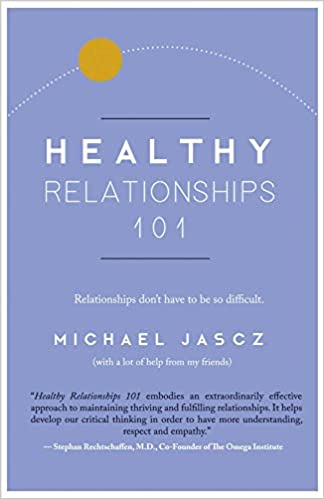
There's no doubt that regular physical activity boosts your metabolism. The human body uses food as energy and discards the waste. Metabolites, which are substances that are created during this process, are also produced. They are what your body uses to signal that you have exercised. Researchers analyzed the blood levels of 200 different substances in 52 subjects. These metabolites were associated with changes in fitness and weight. These results are surprising and indicate that regular exercise can increase your metabolism.
Exercise not only increases metabolism but has many other benefits. Cardiovascular exercise improves your heart rate, lowers your body fat, and reduces your body's overall weight. After exercise, it can also curb your appetite. Aerobic exercises can also boost your metabolism. Strength training is a great option if you're looking to lose weight. This will increase your muscle size and strength. But remember: do not overdo it. There are no quick fixes for slow metabolism.

Exercise boosts your metabolism, and can help you lose weight fast. You also burn more calories when you increase muscle mass. Although regular exercisers may only gain a few more pounds, this doesn't mean that they can boost their metabolism. Muscle mass doesn't have any effect on weight. Because strength training helps build lean muscles, it can boost your metabolism. This may seem like a clear benefit, but it is vital to ensure that you get the right mix of both muscle mass types.
Your lifestyle and diet can impact your metabolism. However, exercise is one surefire way of increasing it. High body fat levels lead to a slower metabolism than those with higher amounts of lean muscles. Because muscle burns more calories per calorie than fat, this is why it is so slow. Also, adding muscle to your physique will increase your RMR. This means your body can convert more food to energy. The longer you exercise, the faster your metabolism will increase.
Exercise can help boost your metabolism and improve your heart health. Regular physical activity has been shown to reduce high blood pressure, cholesterol, and heart disease. It also helps lower inflammation in the arteries. By increasing your cardiovascular health, you can also treat a variety of medical conditions, including heart problems. You will burn more calories when you exercise than you eat if your activity level is increased. You can increase your metabolism by increasing your energy.

Although strength training doesn’t increase your metabolic rates as much than cardio, it does boost it for 14 hour. Also, muscle burns a lot more calories than fat so it's a great way increase your metabolism. Exercise is not the only way to lose weight. It is also important to eat nutritious food. Your metabolic rate can be increased by eating more protein-rich food. Certain foods can have a positive impact on your overall health.
FAQ
What is the best exercise routine to build muscle?
Two main types of exercises are required for building muscle mass. These are the isolation exercises as well as compound movements. While isolating exercises target specific muscles, compound movements are designed to focus on multiple muscle groups at once.
The best way to improve your workouts is to choose exercises that challenge all your major muscle groups. This ensures you're always pushing yourself during your workouts.
MyFitnessPal is an app that allows you to track your activities. It allows you log everything, including calories burned and weight lifted. You can also make custom meal plans according to your goals.
Egg is good for men?
The egg is rich in all nutrients needed by the human body. It aids in maintaining strong bones, healthy hearts, and lungs, as it also maintains stable blood pressure.
Eggs are rich in protein, vitamin A, B12 and D,E,K, as well as vitamins A,B12 and D,E,K, calcium, iron, phosphorus, manganese, copper, magnesium, and riboflavin.
Egg yolks are high in cholesterol. It does not contain any saturated fat. Eggs have less saturated fat than many other foods.
They are also low on calories and sodium. They are also very versatile because you can cook them any way you want. They can be poached or scrambled, baked, hard-boiled, or fried.
They are very nutritious and easy-to-prepare.
Aim to eat two whole eggs per week. You don't have to eat eggs.
Eggs are a good source of essential nutrients for our bodies. Include eggs in your daily diet.
Do I need to exercise every day?
No! Do at least 30 minutes of moderate intensity physical activity five days a week. This means that you should be able to walk fast enough to feel slightly out of breath, or bike hard enough to sweat.
What does butter do for men?
Butter is a great source of saturated fats. This type fat is great for your skin and hair. It also helps you build stronger bones.
Vitamin K in butter also prevents bleeding from cuts, bruises and other injuries. Vitamin K works together with vitamin C to prevent bruising.
Butter is also rich in minerals, including calcium, phosphorous, and potassium. These minerals promote stronger bones, teeth, and teeth.
Butter has its limitations. Butter has high cholesterol. A few studies have shown that too much cholesterol can increase the risk of developing coronary disease.
Butter is also high in saturated fat which can lead to obesity and higher cholesterol.
If you have to have butter, spread it on bread instead of dipping it in soup or salad. Bread absorbs less oil than pasta and potatoes.
Statistics
- According to the American Academy of Dermatology (AAD), men over 50 are at a heightened risk of developing it. (healthline.com)
- By John Thompson Take a whopping 38% off a set of PowerBlock Pros. (menshealth.com)
- 10 pounds in a month is likely during a lean bulking phase, especially for beginners. (muscleandstrength.com)
- Cardmembers earn 5% Back at Amazon.com with a Prime Credit Card. (amazon.com)
- Get free shipping and 25% off today. (healthline.com)
External Links
How To
What nutrients does a man require daily?
Daily nutrition is essential for men's healthy growth. The body requires vitamins and minerals, protein, carbohydrates, fats (fats), water, fiber, as well other essential elements.
The male body also requires specific nutrients at different times throughout the day. Your body makes hormones, antibodies and enzymes when you are asleep. Protein is needed to build muscles and repair tissue damaged when you wake up.
At night, your body breaks down fat and stores the extra energy as glycogen. Your body has less energy but still requires enough nutrients during this time. You may have an occasional snack during the evening hours if you feel hungry.
You need to eat enough carbs and protein when you exercise. If you exercise hard, you might feel muscle soreness.
To prevent this, you should eat carbs as well as protein within the first two hours after training. Your body will break down stored glycogen to provide glucose for energy.
Additionally, it is important to eat protein right away after your workouts are over. This prevents muscle tissue from being broken down while you are sleeping.
During periods of intense physical activity, your body produces lactic acid. The body produces lactic acid when there is too much activity. This can cause fatigue. Avoid this by eating foods rich in carbohydrates such as fruits or vegetables.
Carbohydrates give your body the energy it needs to recover from strenuous exercise.
Your diet may include lean meats like fish, eggs, milk cheese, yogurt or beans as well as lean proteins such as fish, eggs, egg yolks, cheese, yogurt, bean, peanuts and seeds.
All these foods are high-quality sources of protein. Protein aids in muscle growth and repair of damaged tissues. Protein is also necessary for the production of sex hormones such as testosterone.
For healthy skin, hair and joints, it is important to eat enough fats. Healthy men should consume between 20% to 35% of their daily caloric intake from fat.
Fat helps keep your heart strong and protects against cancer. It also keeps your brain functioning properly.
Most of the fat you need can be obtained from vegetable oils, including sunflower oil (or soybean oil), peanut oil, peanut oil, soybean oil, and peanut oil.
These oils have high amounts of monounsaturated oil fatty acids, (MUFAs). MUFAs can lower cholesterol levels and reduce inflammation. They protect cells against damage from free radicals.
Saturated fats are found in animal products including meat, dairy products, butter and other dairy products. SFAs are known to raise LDL ("bad") cholesterol and raise triglycerides. They are also good for weight loss and belly fat.
Plant-based oils such as vegetable oil, nuts, seeds, or grains are rich in polyunsaturated fats (PUFAs). PUFAs reduce inflammation and improve cardiovascular function. They are also good for controlling blood sugar and cholesterol.
Erectile dysfunction can often be a problem for men who have low HDL ("good") levels of cholesterol. Saturated fats are a major source of bad cholesterol. This lowers good cholesterol.
Red meat and pork are a common source of prostate problems in men who eat a lot. High temperatures can cause nitrates to become nitrosamines. These compounds cause cancer.
Most processed meats contain nitrites and other harmful chemicals. Avoid them completely.
The American Heart Association recommends limiting red meat intake to two meals per week. Instead, choose poultry, fish, legumes, tofu, whole grain bread, and cereals.